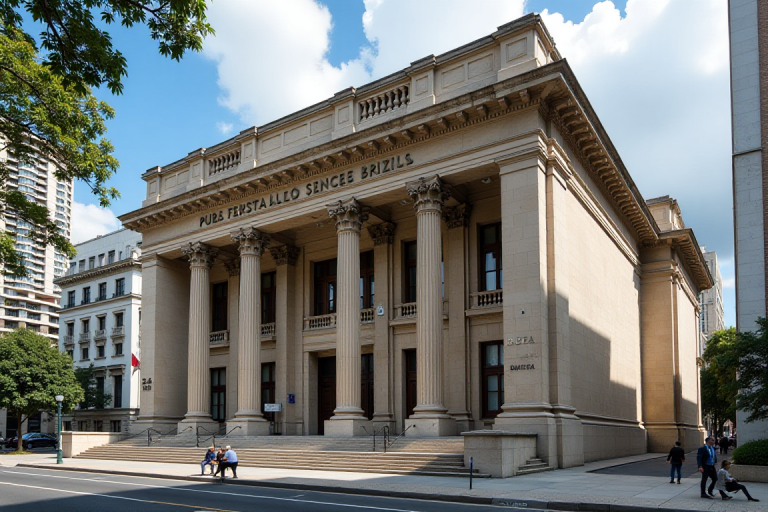Brazil’s Central Bank on Tuesday ordered the extrajudicial liquidation of Banco Master, shutting down the institution and terminating its operations indefinitely.
The order, signed by Central Bank president Gabriel Galípolo, also calls for the judicial liquidation of Master SA Corretora de Câmbio.
The regulator appointed EFB Regimes Especiais de Empresas as the liquidator, granting it broad authority to dismantle the financial group’s activities.
The announcement came shortly after Federal Police arrested Banco Master owner Daniel Vorcaro in São Paulo.
His detention followed intensifying regulatory scrutiny and marked a dramatic turn for the lender, which had been on the verge of collapse for months.
Failed sale and aborted negotiations
The liquidation followed nearly a month of uncertainty after the Central Bank rejected Banco de Brasília’s (BRB) proposal to acquire a stake in Banco Master.
The regulator had been reviewing the transaction since March, but ultimately withheld approval.
Tuesday’s decision also ended Master’s ongoing negotiations with Grupo Fictor.
The talks, disclosed on Monday night, had offered a potential path forward for the struggling institution, but any agreement was rendered void once the liquidation order was issued.
What does extrajudicial liquidation mean
This measure is applied when the Central Bank determines that a financial institution’s recovery plan is no longer viable.
Rather than attempting further intervention or restructuring, regulators opt for the orderly removal of the entity from the Brazilian National Financial System (SFN).
Under extrajudicial liquidation, Banco Master’s activities are fully halted, and all operations are suspended.
Control of management decisions and the handling of assets is transferred to the appointed liquidator, who also freezes the bank’s obligations, which are then treated as payable claims.
The Central Bank has not provided a timeline for completing the process. The liquidation will conclude with either a final ruling by the regulator or a declaration of bankruptcy.
The complete shutdown of operations is intended to contain risks to the broader financial system and ensure Master’s exit occurs in an orderly manner rather than through a disorderly collapse.
FGC steps in to protect depositors
The liquidation decree places responsibility on the Credit Guarantee Fund (FGC) to reimburse eligible creditors of Banco Master.
The FGC is a private institution that insures depositors when affiliated financial institutions undergo intervention, extrajudicial liquidation or are formally declared insolvent.
Its coverage extends to deposits and a range of financial instruments, including checking and savings accounts, CDBs, RDBs, LCIs, LCAs, bills of exchange and mortgage-backed securities.
Reimbursement amounts are calculated net of applicable taxes, including income tax and the IOF financial transactions tax.
The guarantee covers up to R$250,000 per depositor — whether an individual or a legal entity — with a cap of R$1 million over a four-year period.
Amounts exceeding those limits are not covered.
The Central Bank said the resources required for these guarantees had already been provisioned at the time the liquidation was ordered.
The liquidation decree makes the Credit Guarantee Fund (FGC) liable for paying back those creditors of Banco Master who are entitled to it.
The post Brazil’s Central Bank orders extrajudicial liquidation of Banco Master appeared first on Invezz

